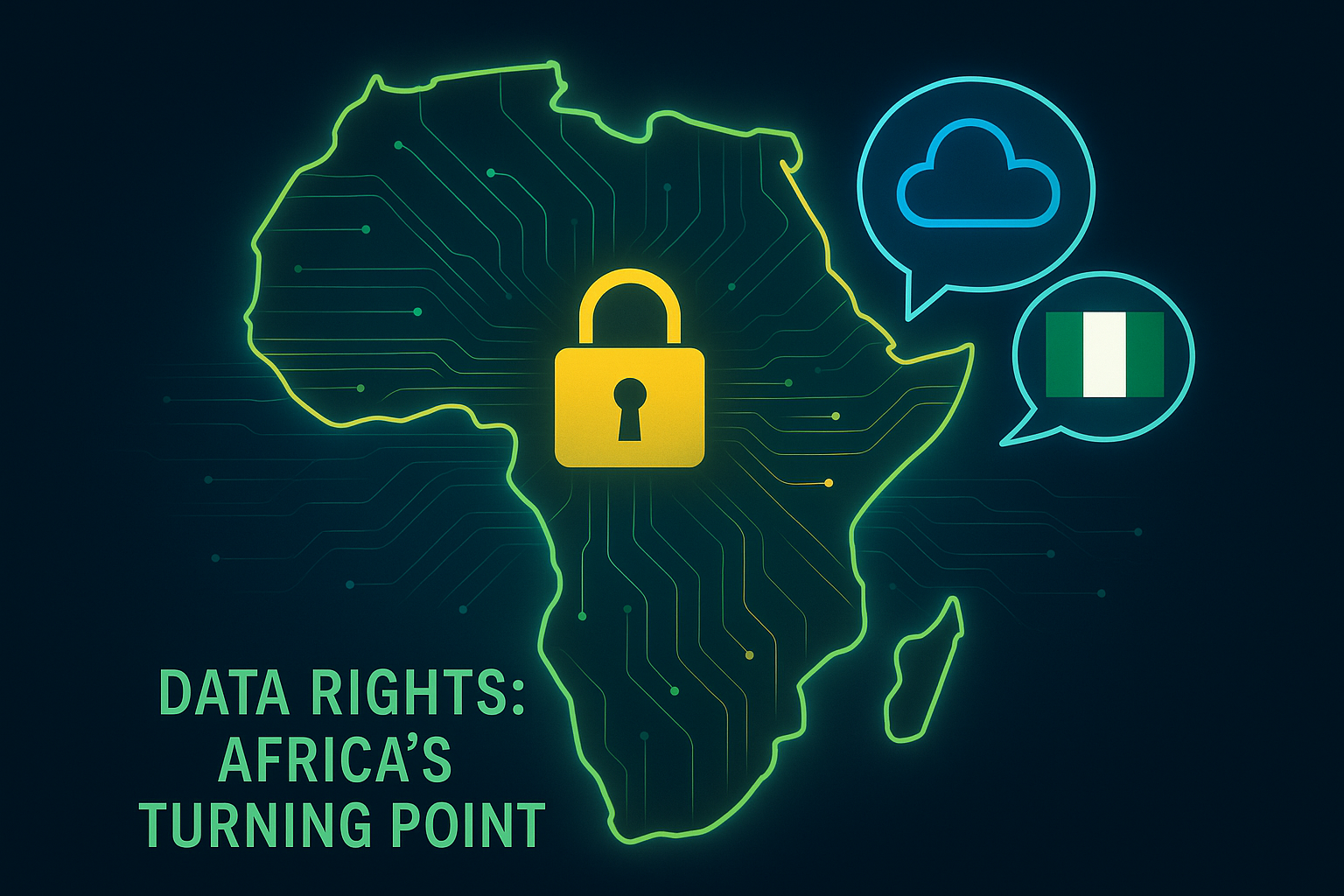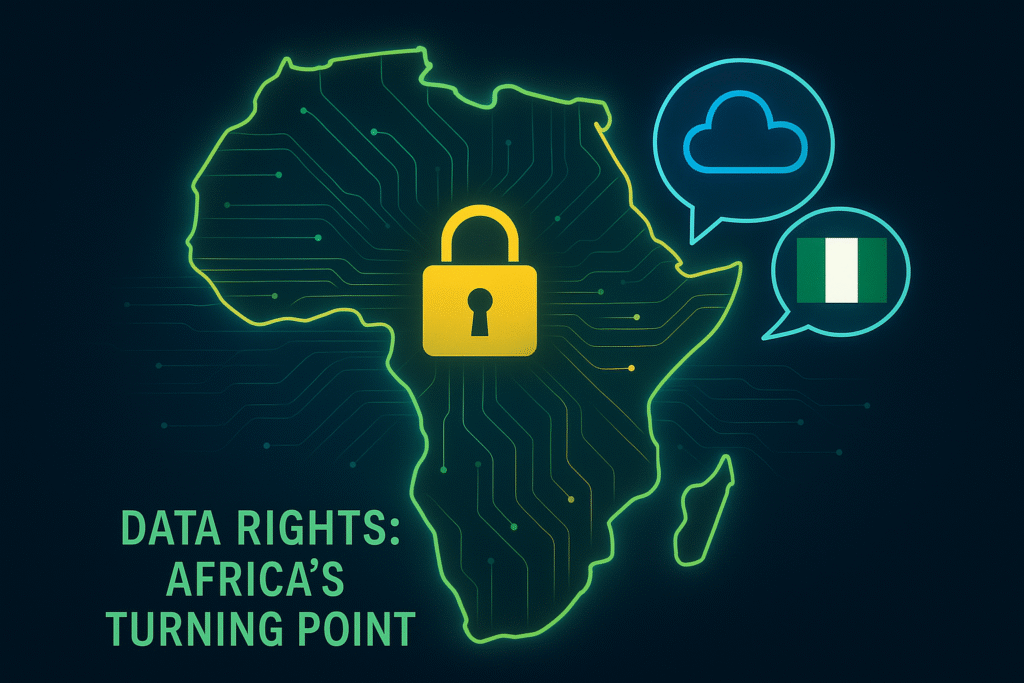Physical Address
304 North Cardinal St.
Dorchester Center, MA 02124
Physical Address
304 North Cardinal St.
Dorchester Center, MA 02124


Meta Platforms’ threat to shut down Facebook, Instagram and WhatsApp in Nigeria after regulators upheld almost US $290 million in penalties has boldly jolted Africa’s technology scene. The dispute is not just about a single company, it will test whether 1.5 billion Africans will be treated as data citizens or data commodities in the age of artificial intelligence.
If Nigeria holds the line, every other government on the continent will gain fresh courage to protect its people’s privacy, however, if Nigeria blinks, the message is that Africa’s data can be taken, packaged and sold without consequence. Either way, the world is watching.
The clash began in 2021 when Nigeria’s Federal Competition and Consumer Protection Commission (FCCPC) opened an inquiry into WhatsApp’s privacy overhaul. After two years the FCCPC, the advertising regulator and the Nigeria Data Protection Commission imposed fines of US $220 million, US $37.5 million and US $32.8 million.
In April 2025 the Competition and Consumer Protection Tribunal upheld the penalties, instructed Meta to publish a regulator-approved privacy policy, restore granular consent controls and stop piping WhatsApp data to Facebook without an opt-in, and gave the company until 30 June 2025 to pay. Meta filed for a stay and warned that providing its services in Nigeria might become “impossible”.
Investigators say that WhatsApp funnelled Nigerian users’ location, contact lists and behavioural signals into Meta’s global advertising engine without the explicit opt-out offered in Europe. Children’s data allegedly flowed through the same pipes with only token safeguards, and Nigerian users were forced to accept terms that would be illegal in many other jurisdictions.
The FCCPC called the practice “digital red-lining” that strips people of autonomy and amplifies existing vulnerabilities. The tribunal noted that such unequal treatment not only breaches Nigeria’s 2019 Data Protection Regulation but also undermines citizens’ constitutional right to dignity and autonomous development.
What is infuriating to me, and many observers, is the double standard.
When the European Union fined Meta €1.2 billion for similar violations in 2023, or when Texas levied US $1.5 billion over facial-recognition tracking, Meta paid and stayed put. Yet in Africa’s largest market the company threatened to switch off its platforms entirely – a move critics have branded digital neo-colonialism.
The unequal treatment underscores why emerging economies must build collective leverage rather than negotiate alone.
A blanket withdrawal would punish ordinary Nigerians far more than regulators. Facebook reaches roughly 51 million Nigerians; WhatsApp and Instagram add tens of millions more. These platforms host micro-retail stores, health-advice groups, disaster-response channels and citizen-journalism feeds. Cutting those lifelines would strand small traders, silence activists and disconnect families; especially women, youth and rural users whose entire online existence sits inside a single free app.
Nigeria’s stance shows African states can enforce privacy rules, yet only 15 of 55 African Union members have ratified the Malabo Convention on data protection. Harmonising legislation through blocs such as ECOWAS and the AfCFTA would close loopholes and deny Big Tech regulator shopping, while a shared framework would nurture a pan-African data economy in which local start-ups build trustworthy AI. Penalties for dark-pattern consent and opaque algorithms must be stiff enough to matter.
Auditing recommendation engines demands forensic data scientists as well as lawyers, and most regulators lack that capacity. Shared algorithm-testing sandboxes, secondments to universities and pooled funding can bridge the gap. Kenya’s Data Protection Commissioner already runs ethical-AI audits, while South Africa’s Information Regulator is sandboxing large-language-model roll-outs under POPIA – a proof that progress is possible on tight budgets.
Surveys show fewer than one in four internet users in sub-Saharan Africa can name their national data-protection authority, and only 16 percent routinely adjust default privacy settings. Because digital literacy lags device adoption, underserved communities often swap their personal data for zero-rated airtime, unaware that the same profile can influence credit scores, job ads and incarceration risk-scores.
Teaching data rights therefore needs to be as common as teaching road safety, and just as early.
AI for Africa, we are launching a free foundation courses in Cybersecurity and Digital Citizenship tackles that gap. We will announcing dates for these short virtual courses soon.
However, with the right support, we can do better: make the mobile-first micro-courses in English, Hausa, Yoruba, Swahili, and French. In 15-minute lessons, learners will practice turning on two-factor authentication, refusing intrusive permissions, spotting deepfakes, and challenging algorithmic bias. We will partner with libraries, women’s farming cooperatives, disability-rights groups, and local radio to embed training where bandwidth, literacy and trust are low.
We aim to reach 1 million people to complete the programme across six countries in the first 6 months, and we aim to reach 5 million by 2026. Learners earn verifiable certificates they can share with employers and peers, reinforcing positive behaviour.
If regulators retreat, Silicon Valley will treat African data as free raw material. If they stand firm, and citizens, educators and industry back them, Africa can build a fairer, safer and more inventive internet on its own terms.
Governments elsewhere should watch closely, align their rules and invest in public digital-literacy campaigns. Data dignity is no more a luxury; it is the ticket to the future.
We invite policymakers, educators and grassroots groups to co-author this social contract and integrate our training resources into national curricula.
References
https://restofworld.org/2025/meta-nigeria-fine
FCCPC reacts to Meta’s threat of exiting Nigeria over $220 million fine
Obi Umegbolu is a serial entrepreneur and innovation leader with 20+ years of experience founding and scaling tech ventures. Currently advise UK tech business leaders on the government-endorsed Help to Grow Management Programme, driving sustainable growth strategies. Lead the AI for Africa Thinktank, advancing accessible AI education to empower businesses and educators across Africa. Co-authored a British Computing Society guide on evolving data strategies, helping organisations navigate the data-driven landscape. Partner with startups and SMEs to turn innovation into actionable goals to achieve impactful results.